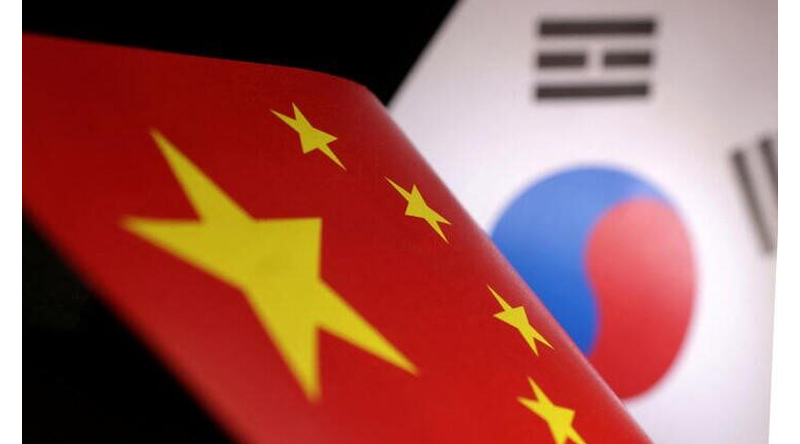Last month in South Korea, a regular flight was about to take off from Incheon Airport. Everything seemed normal until the flight was suddenly delayed. The airplane door stayed open.
A Shocking Arrest in South Korea
Then came an unexpected announcement from the flight attendant asking a passenger to come forward. The passenger nervously walked toward the front of the plane. But instead of boarding the flight, he was arrested on the spot by airport police and intelligence agents.
He wasn’t carrying any weapons or secret military documents. Instead, he was caught with something just as valuable—confidential data related to high-bandwidth memory (HBM) chips. These chips are used in super-fast computers and help power technologies like artificial intelligence. South Korea is one of the few countries in the world that produces these high-tech chips, and protecting their design is very important.
Authorities in South Korea stopped this man just in time. If he had flown to China with that sensitive information, it could have seriously damaged South Korea’s technology sector. It was the first time someone had been arrested mid-flight for trying to steal technology secrets. But sadly, this is only one example in a long and growing list of cases.
Chinese Espionage Fears Trigger Tech Crackdown: India Imposes Tough New Rules on CCTV Industry
A Pattern of Secret Leaks
South Korea has seen more than 40 cases of technology theft linked to China over the past two years. Experts believe this number is just a small part of the actual total. Most of these cases follow a familiar pattern. A worker at a major South Korean tech company—perhaps one that builds phones, ships, or batteries—feels stuck in their career. Many times, these workers are older and passed over for promotion. In South Korea’s work culture, this can feel very disrespectful.
Some of these workers look for better-paying jobs elsewhere. That’s when Chinese companies often come calling. These companies offer salaries that are three or four times higher than what they earn in Korea. They even offer housing and moving expenses. But there’s a catch: to get the job, they must bring company secrets with them.
The methods used to steal these secrets are surprisingly simple. Some workers take pictures of documents after hours. Others email confidential files to their personal accounts. There was even a case where someone hid a USB drive in their sock. If they get away with it, they move to China and use the stolen information to help Chinese companies or start their own with government support.
In one extreme case, someone took blueprints for an entire semiconductor factory. They planned to build a copy of the factory in China, right near the original. This kind of theft makes it much harder for South Korean companies to stay ahead.
Why It Matters to the United States
While this may sound like a problem only for South Korea, it also directly affects the United States. First, the U.S. has been working hard to keep advanced technology out of China’s hands. This includes limiting what American companies can sell to Chinese tech firms. But these efforts don’t work if China can just get the same technology from South Korea instead.
South Korea is a leader in several important industries, like memory chips, shipbuilding, batteries, and chemicals. These technologies are not only valuable but also essential to national security. Many American companies work closely with Korean firms. For example, Korean companies like Samsung, LG, and Hyundai have built large factories in the U.S., investing billions of dollars.
If South Korean companies are not watching their employees closely, then U.S. companies could be exposed too. Information shared between partners in the U.S. and Korea could be at risk of ending up in the hands of foreign governments. This creates a serious problem for American businesses and for the security of new technology.
Even though the U.S. has strong rules about protecting its own secrets, it can’t control what happens in other countries. That’s why the problem of Chinese espionage in South Korea is also a U.S. problem. When technology leaks out of Korea, it weakens the efforts made by the U.S. to stop its spread. It also puts American companies and jobs at risk.
Some believe that the U.S. should work more closely with South Korea to stop this kind of theft. However, U.S. policies have recently become more focused inward, with less attention given to working with allies. Some experts think the U.S. might respond to these problems by putting pressure on Korea through trade penalties or other actions.
No matter how it is handled, one fact is clear: secrets stolen in South Korea today can affect technology and security in the United States tomorrow. The theft of sensitive information by foreign actors is no longer just a national issue. It’s a global one.

